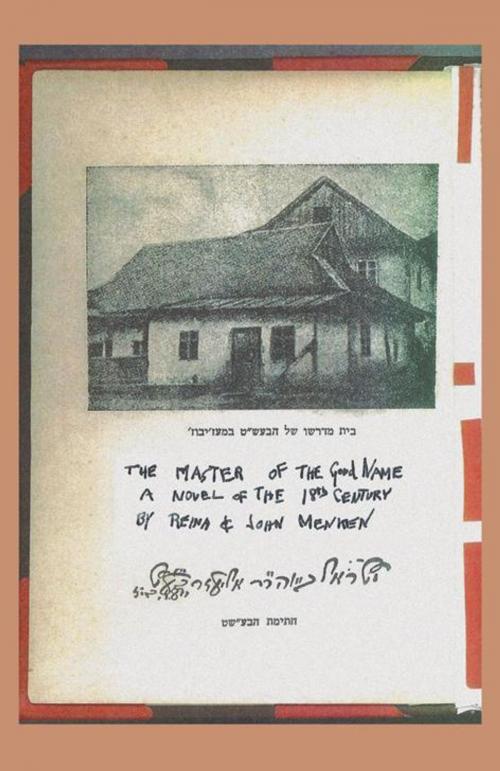The Master of the Good Name
A Novel of the 18Th Century
Nonfiction, Religion & Spirituality, Inspiration & Meditation, Spirituality, History, Fiction & Literature| Author: | Reina, John Menken | ISBN: | 9781466956360 |
| Publisher: | Trafford Publishing | Publication: | September 18, 2012 |
| Imprint: | Trafford Publishing | Language: | English |
| Author: | Reina, John Menken |
| ISBN: | 9781466956360 |
| Publisher: | Trafford Publishing |
| Publication: | September 18, 2012 |
| Imprint: | Trafford Publishing |
| Language: | English |
In the words of Elie Wiesel: The man who left his mark on so many survivors of so many massacres in Central and Eastern Europe, the leader who not only made survival imperative but possible, the Master who gave to despairing communities, managedwe shall never know howto disappear without leaving the professional seekers even a fragment of valid autobiographical material. Obsessed by eternity, he neglected history and let himself be carried by legend. Wiesel is talking about the Baal Shem Tov, The Master of the Good Name. Readers acquainted with Jewish history will have an idea who the Baal Shem Tov was. But the width of the spectrum of such ideas can be immeasurably wide. Equally wide is the range of emotions these ideas arouse. Readers unacquainted with such a history may be able to read this book more easily as a novel, which it is. What surrounds the stage of our action is, of course, the great world of history and a time of disruptions and new thinking. Of great consequence is the transmission from China of the musical theory of equal temperament which forms the basis of almost all musical composition from the mid18th century to the music saturated present. This musical theory was received and then published in France by Mersenne in 1636; in 1722 it was being championed by Bach in his instructions to young musicians collected under the title, The Well Tempered Clavier. That year the Baal Shem Tov was probably earning his living digging clay and accompanying his labors with Carpathian shepherds tunes. The story is told through the eyes of an invented student of his who becomes a physician in Prague.
In the words of Elie Wiesel: The man who left his mark on so many survivors of so many massacres in Central and Eastern Europe, the leader who not only made survival imperative but possible, the Master who gave to despairing communities, managedwe shall never know howto disappear without leaving the professional seekers even a fragment of valid autobiographical material. Obsessed by eternity, he neglected history and let himself be carried by legend. Wiesel is talking about the Baal Shem Tov, The Master of the Good Name. Readers acquainted with Jewish history will have an idea who the Baal Shem Tov was. But the width of the spectrum of such ideas can be immeasurably wide. Equally wide is the range of emotions these ideas arouse. Readers unacquainted with such a history may be able to read this book more easily as a novel, which it is. What surrounds the stage of our action is, of course, the great world of history and a time of disruptions and new thinking. Of great consequence is the transmission from China of the musical theory of equal temperament which forms the basis of almost all musical composition from the mid18th century to the music saturated present. This musical theory was received and then published in France by Mersenne in 1636; in 1722 it was being championed by Bach in his instructions to young musicians collected under the title, The Well Tempered Clavier. That year the Baal Shem Tov was probably earning his living digging clay and accompanying his labors with Carpathian shepherds tunes. The story is told through the eyes of an invented student of his who becomes a physician in Prague.















